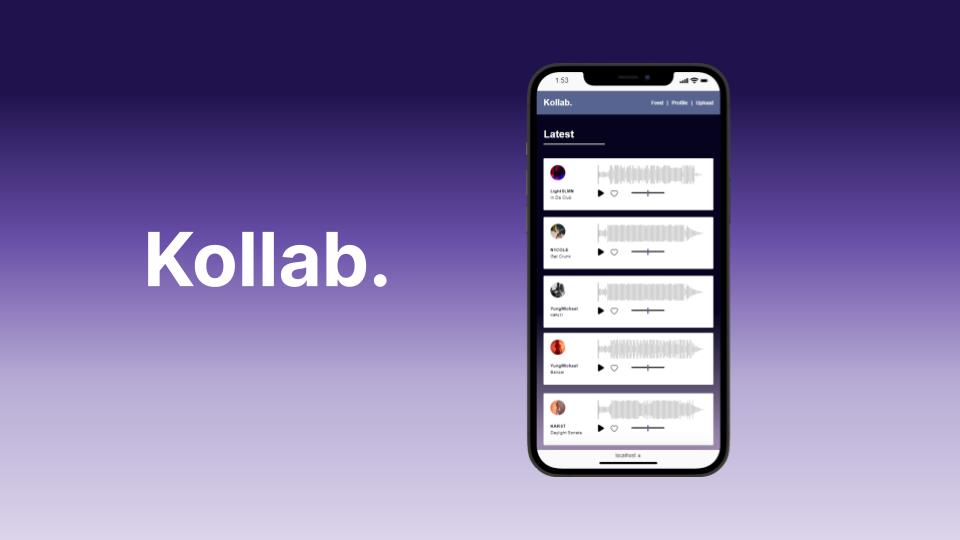The only professional tool you'll need to grow as a creative!
This is my capstone project that I have built from start to finish for BrainStations web development bootcamp. I was given the opportunity to demonstrate my knowledge by building a full-stack application over two weeks. I utilized React.js, SCSS, Node.js, Express.js, JWT, Knex, MySQL, and AWS S3 to build this project.
Click here to watch my demo presentation or you can try it out for yourself here using my demo account! (yakiv.yyz@gmail.com, password).
Follow these steps to run a local instance of Kollab:
(You'll need node, npm, and MySQL already installed.)
- Clone or download this repo.
-
Create a new database in MySQL called
kollab. -
Install server dependencies:
Run
npm installfrom inside the server directory.$ cd server $ npm install -
Run migrations
$ npm run migrate
-
Run seeds
$ npm run seed
-
Create AWS S3 bucket, set to public access
-
Create bucket policy and retrieve bucket keys
-
Set environment variables:
Rename
.env_templateto.envand change placeholder values with your own.PORT=<PORT NUMBER> SECRET_KEY=<JWT SECRET KEY> DB_HOST=<HOST ADDRESS> DB_USER=<MYSQL DATABASE USER> DB_PASSWORD=<MYSQL DATABASE PASSWORD> AWS_BUCKET_NAME=<AWS S3 BUCKET NAME> AWS_BUCKET_REGION=<AWS S3 BUCKET REGION> AWS_ACCESS_KEY=<AWS S3 ACCESS KEY> AWS_SECRET_ACCESS_KEY=<AWS S3 SECRET ACCESS KEY>
-
Start the server:
$ node index.js-
Install client dependencies:
Run
npm installfrom inside the client directory.$ cd ../client $ npm install -
Set environment variables:
Rename .env_template to .env and change the placeholder value to the port you set for the server.
REACT_APP_API_URL=http://localhost:<PORT SET IN /server/.env>- Start the React app:
$ npm start
